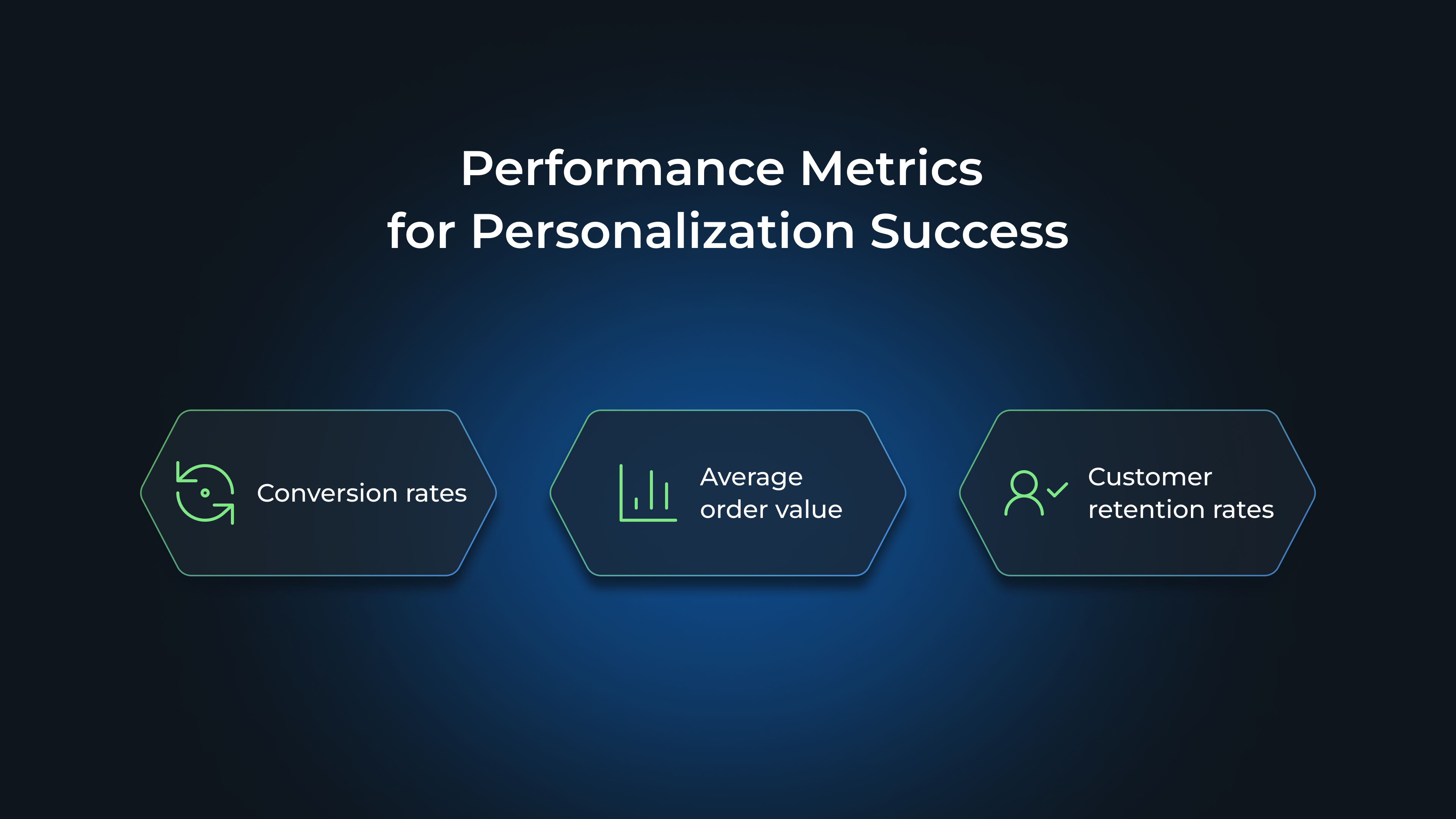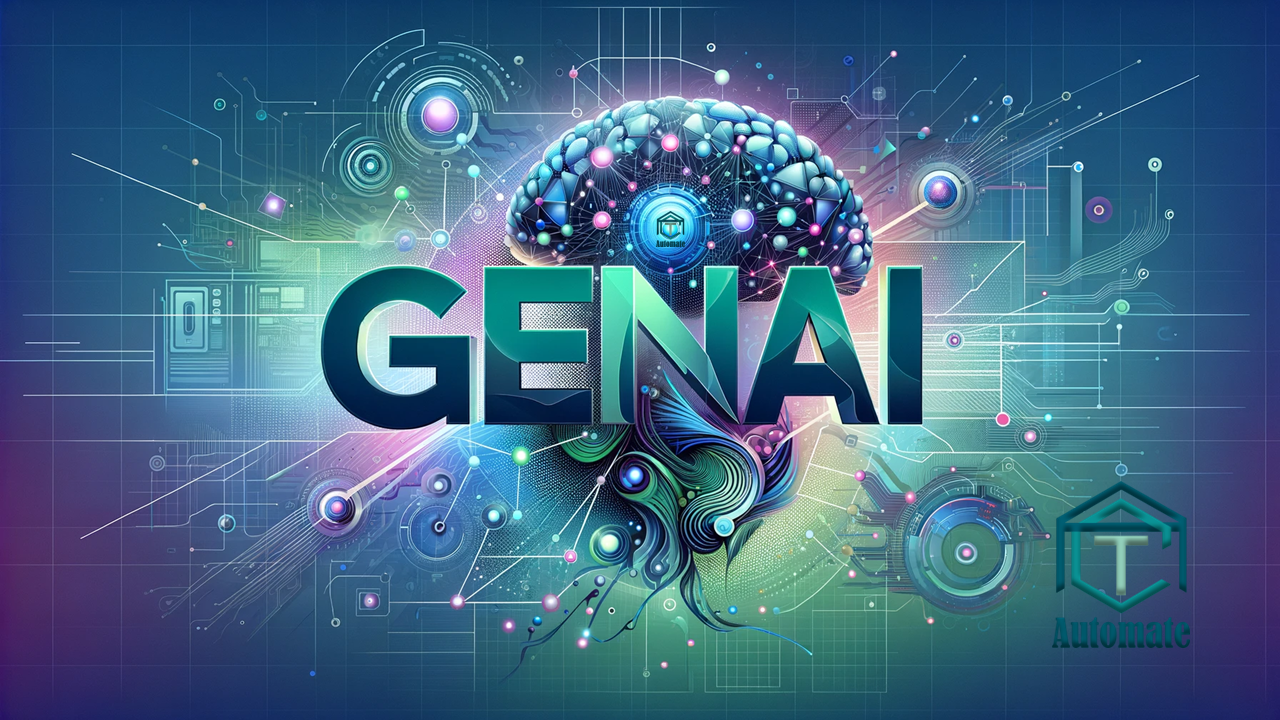In today’s digital age, personalization has become a crucial factor in retail success. Customers now expect personalized experiences that cater to their unique needs and preferences. To meet these expectations, many retail businesses are turning to custom personalization engines. These engines enable retailers to provide targeted recommendations, personalized promotions, and relevant content to their customers.
What is a Personalization Engine?
Personalization engines are sophisticated software solutions that leverage data analytics, machine learning, and artificial intelligence to deliver personalized experiences to customers. They are designed to analyze customer data, identify patterns and trends, and generate real-time recommendations based on individual preferences and behavior.
Personalization engines have become increasingly important in today’s digital age, where customers expect tailored experiences that cater to their unique needs and interests. By understanding and anticipating customer preferences, personalization engines enable businesses to create meaningful connections with their target audience.
But how exactly do personalization engine tool works, and what role do they play in the retail industry? Let’s delve deeper into these questions.
The Role of Personalization in Retail
In the retail industry, personalization engines play a crucial role in enhancing the customer experience. They allow retailers to create tailored shopping experiences that resonate with customers. By understanding customer preferences, behaviors, and purchase history, personalization engines can deliver relevant recommendations and offers, ultimately increasing customer satisfaction and loyalty.
Imagine visiting an online store and being greeted with a homepage that showcases products specifically curated for you. As you browse through the website, you receive personalized recommendations based on your previous purchases and browsing history. This level of personalization not only saves you time but also enhances your overall shopping experience.
Moreover, personalization engine solutions enable retailers to engage with customers on a deeper level. By analyzing customer data, these engines can identify specific customer segments and tailor marketing campaigns accordingly. For example, if a retailer notices that a group of customers frequently purchases athletic wear, they can create targeted promotions and content specifically for that segment.
Ultimately, personalization engines empower retailers to build stronger relationships with their customers, leading to increased customer loyalty and higher conversion rates.
Key Components of a Personalization Engine

A personalization engine tool consists of several key components that work together to deliver personalized experiences:
- Data Collection: The engine collects and analyzes customer data from various sources, such as purchase history, website interactions, and social media activity. This data provides valuable insights into customer preferences, behaviors, and interests.
- Machine Learning Algorithms: These algorithms learn from the collected data to identify patterns and make predictions about customer preferences and behavior. By continuously analyzing data, machine learning algorithms can adapt and improve their recommendations over time.
- Recommendation Engine: The recommendation engine uses the insights gained from the machine learning algorithms to generate personalized product recommendations. These recommendations are based on factors such as previous purchases, browsing history, and similar customer profiles.
- Content Management System: The content management system allows retailers to create and manage personalized content and promotions for their customers. This includes creating targeted landing pages, personalized emails, and customized product recommendations.
Additionally, personalization engines often integrate with other systems, such as customer relationship management (CRM) platforms and e-commerce platforms, to further enhance the customer experience. By leveraging customer data from these systems, personalization engines can provide a seamless and cohesive experience across different touchpoints.
It’s worth noting that personalization engines are not limited to the retail industry. They are also utilized in other sectors, such as travel, media, and entertainment, to deliver personalized experiences and drive customer engagement.
In conclusion, personalization engines are powerful tools that enable businesses to deliver personalized experiences to their customers. By leveraging data analytics, machine learning, and artificial intelligence, these engines can understand customer preferences, behaviors, and purchase history to generate real-time recommendations and offers. As technology continues to advance, personalization engines will play an increasingly important role in shaping the future of customer experiences.
Custom Personalization Engine Development
Building a custom personalization engine requires careful planning and implementation. Here are the key steps to follow:
Step 1. Identify Your Retail Needs
Before embarking on the development of a personalization engine, it’s crucial to identify your specific retail needs. Assess your target audience, the type of products you offer, and the level of personalization you want to achieve.
For example, if you are a fashion retailer, you may want to personalize recommendations based on a customer’s style preferences, browsing history, and purchase behavior. On the other hand, if you are an electronics retailer, you may want to personalize recommendations based on a customer’s previous purchases, product reviews, and tech preferences.
Understanding your retail needs will help you determine the scope and requirements of your personalization engine tool.
Step 2. Choose the Right Technology and Tools
Selecting the right technology and tools for your personalization engine is essential. Consider factors such as scalability, ease of integration with your existing systems, and the level of customization required.
There are various technologies and tools available in the market for building personalization engines. Some popular choices include machine learning frameworks like TensorFlow and PyTorch, recommendation systems like Apache Mahout, and cloud-based platforms like Amazon Personalize.
When choosing the technology and tools, it’s important to evaluate their capabilities in handling large datasets, their ability to handle real-time personalization, and their compatibility with your existing infrastructure.
Step 3. Design the Personalization Algorithm
The heart of a personalization engine lies in its algorithm. Designing a powerful and accurate algorithm involves defining the data inputs, training the model, and fine-tuning it based on ongoing feedback and testing.
When designing the personalization algorithm, you need to consider various factors. These include the type of data you have available (e.g., customer demographics, browsing behavior, purchase history), the goals of your personalization efforts (e.g., increasing conversion rates, improving customer satisfaction), and the constraints of your system (e.g., real-time recommendations, scalability).
Additionally, you may need to incorporate techniques such as collaborative filtering, content-based filtering, or hybrid approaches to ensure accurate and relevant recommendations.
It’s also important to continuously monitor and evaluate the performance of your algorithm. This can be done through A/B testing, where different versions of the algorithm are compared to determine which one performs better in terms of key metrics like click-through rates or conversion rates.
By regularly analyzing the feedback and testing results, you can make iterative improvements to your algorithm and enhance the overall personalization experience for your customers.
Personalization Engine Implementation
Implementing a personalization engine solution requires seamless integration with your existing retail systems. This ensures a smooth flow of data and enables the engine to generate personalized recommendations in real-time.
When integrating your personalization engine with your existing retail systems, it is essential to consider the different components that make up your retail ecosystem. These components may include your e-commerce platform, CRM, and inventory management system. Each of these systems plays a crucial role in delivering a personalized experience to your customers.
Integrating with your e-commerce platform allows the personalization engine to access customer data, such as browsing history, purchase behavior, and preferences. This data is then used to generate personalized product recommendations, tailored promotions, and targeted marketing campaigns.
Your CRM system holds valuable customer information, including contact details, past interactions, and customer segmentation. Integrating your personalization engine with your CRM enables you to leverage this data to create personalized communication strategies, such as personalized emails, notifications, and customer support.
Furthermore, integrating with your inventory management system ensures that the personalization engine has real-time access to product availability, pricing, and stock levels. This information is crucial for delivering accurate and relevant recommendations to your customers, preventing disappointment due to out-of-stock items or incorrect pricing.
-
Integration with Existing Retail Systems
We at Wesoftyou understand the importance of seamless integration. Our experienced team can help integrate your personalization engine solution with your existing retail systems, such as your e-commerce platform, CRM, and inventory management.
Our integration process begins with a thorough analysis of your current systems and infrastructure. We identify any potential challenges or limitations and develop a customized integration plan that addresses your specific requirements.
Our team of experts works closely with your IT department to ensure a smooth and efficient integration process. We follow industry best practices and utilize robust integration tools and technologies to minimize disruption to your business operations.
Throughout the integration process, we conduct rigorous testing and quality assurance to ensure that the personalization engine seamlessly integrates with your existing retail systems. We verify data accuracy, system compatibility, and performance to guarantee a reliable and efficient solution.
-
Testing and Refining Your Engine
After the initial implementation, it’s crucial to test and refine your personalization engine continuously. Regularly analyze the performance and effectiveness of the engine, make necessary adjustments, and fine-tune the algorithms.
Testing your personalization engine involves evaluating its ability to deliver accurate and relevant recommendations to your customers. This includes measuring key performance indicators such as click-through rates, conversion rates, and customer satisfaction scores.
By analyzing these metrics, you can identify areas for improvement and make data-driven decisions to refine your personalization engine further. This may involve adjusting the algorithms to improve recommendation accuracy, optimizing the user interface to enhance the customer experience, or incorporating new data sources to enrich the personalization capabilities.
Continuous testing and refinement are essential to ensure that your personalization engine remains effective and aligned with your business goals. It allows you to stay ahead of changing customer preferences and market trends, delivering a personalized experience that drives customer loyalty and revenue growth.
Retail Personalization Engine’s Performance
Measuring the success of your personalization engine is imperative to gauge its effectiveness. Implementing a personalization engine can greatly enhance the customer experience and drive business growth. By tailoring content and recommendations to individual users, you can increase engagement, conversion rates, and customer satisfaction. However, it is essential to continuously monitor and evaluate the performance of your personalization engine to ensure its effectiveness and make necessary improvements.
Here are some key performance indicators to consider:
Key Performance Indicators for Personalization

Monitoring metrics such as conversion rates, average order value, and customer retention can help you assess the impact of your personalization engine on your business’s bottom line. By analyzing these indicators, you can gain valuable insights into how well your personalization efforts are resonating with your target audience.
Conversion rates provide a clear measure of how successful your personalization engine is in driving users to take desired actions, such as making a purchase or signing up for a newsletter. By tracking the conversion rates of personalized content compared to non-personalized content, you can determine the effectiveness of your personalization strategy.
Average order value is another important metric to consider. Personalization can influence users to spend more by presenting them with relevant product recommendations or exclusive offers. By analyzing the average order value of personalized recommendations compared to generic ones, you can determine if your personalization engine is effectively driving higher-value purchases.
Customer retention is a crucial indicator of the long-term success of your personalization efforts. By delivering personalized experiences that meet the unique needs and preferences of your customers, you can foster loyalty and encourage repeat purchases. Monitoring customer retention rates can help you gauge the effectiveness of your personalization engine in building lasting relationships with your audience.
Regular Review and Updates for Optimal Performance
From our experience, we know that personalization engines require regular review and updates. Customer preferences and behaviors change over time, so it’s crucial to adapt your engine accordingly to maintain its optimal performance. Conducting regular audits of your personalization strategies and analyzing user feedback can provide valuable insights into areas for improvement.
Consider conducting A/B testing to compare the performance of different personalization algorithms or content strategies. This can help you identify the most effective approaches and refine your personalization engine accordingly. Additionally, staying up-to-date with industry trends and advancements in personalization technology can ensure that your engine remains competitive and delivers the best possible user experience.
Remember, personalization is an ongoing process. Continuously monitor the performance of your personalization engine, gather feedback from your users, and make data-driven improvements to ensure its long-term success.
Future Trends in Retail Personalization
The field of retail personalization is continuously evolving. Here are two trends that are shaping the future:
-
AI and Machine Learning
Artificial intelligence and machine learning are advancing personalization capabilities in the retail industry. These technologies enable retailers to analyze vast amounts of data, make accurate predictions, and provide customers with highly personalized experiences.
AI and machine learning algorithms can analyze customer data such as browsing history, purchase patterns, and social media activity to understand individual preferences and behaviors. By leveraging this information, retailers can create tailored product recommendations, personalized marketing campaigns, and customized shopping experiences.
For example, imagine a customer who frequently purchases running shoes online. An AI-powered personalization system can analyze this customer’s data and recommend related products such as running socks, fitness trackers, or even personalized training plans. This level of personalization not only enhances the customer’s shopping experience but also increases the likelihood of repeat purchases and customer loyalty.
-
Big Data
Big data is playing a significant role in personalization. By leveraging data from various sources, retailers can gain in-depth insights into customer behavior, preferences, and even sentiments. This information can be used to tailor experiences and drive higher customer engagement and satisfaction.
With the proliferation of digital touchpoints, retailers have access to a wealth of customer data. This includes online browsing behavior, purchase history, demographic information, and even customer feedback. By aggregating and analyzing this data, retailers can identify patterns and trends that can inform their personalization strategies.
For instance, a retailer may discover that customers who purchase winter coats also tend to buy winter accessories such as scarves and gloves. Armed with this knowledge, the retailer can create personalized product bundles or targeted promotions to upsell complementary items to customers who have purchased a winter coat.
Furthermore, big data can also help retailers understand customer sentiments and preferences. By analyzing customer reviews, social media mentions, and customer support interactions, retailers can gain insights into what customers like or dislike about their products or services. This information can then be used to improve product offerings, enhance customer service, and deliver more personalized experiences.
In conclusion, the future of retail personalization is driven by AI, machine learning, and big data. These technologies enable retailers to understand their customers at a deeper level and deliver highly personalized experiences. By leveraging these trends, retailers can not only increase customer engagement and satisfaction but also drive business growth. As a software development company with a proven track record, WeSoftYou can help you build and implement a robust personalization engine tool that meets your retail needs. Contact us today for a free consultation or project estimation.
Conclusion
In today’s digital retail landscape, personalization engines have emerged as indispensable tools, reshaping the way businesses connect with their customers. These engines, driven by data analytics, machine learning, and AI, play a pivotal role in offering tailored shopping experiences, making recommendations based on customer preferences, behaviors, and purchase history.
The impact is tangible; personalization enhances the customer experience, fostering stronger connections between retailers and their audience. As businesses build and implement these engines, they can harness the power of AI, machine learning, and big data to create deeply personalized experiences that drive loyalty and growth.
In this dynamic field, WeSoftYou, a trusted software development company, stands ready to help businesses build and implement robust personalization engine solutions that meet their retail needs.
To get started on building your custom personalization engine, contact WeSoftYou today for a free consultation or project estimation. Our team of experts is ready to collaborate with you to create a personalized solution that will elevate your retail business and provide your customers with exceptional experiences.
FAQ
A personalization engine is a software solution that leverages data analytics, machine learning, and artificial intelligence to deliver personalized experiences to customers in the retail industry. It analyzes customer data, identifies patterns, and generates real-time recommendations based on individual preferences and behavior.
With a personalization engine, retailers can go beyond generic recommendations and tailor their offerings to each customer’s unique tastes and preferences. By understanding individual shopping habits, preferences, and purchase history, the engine can provide personalized product recommendations, targeted promotions, and relevant content to enhance the overall shopping experience.
By utilizing advanced algorithms and machine learning techniques, a personalization engine solution can continuously learn and adapt to changing customer preferences, ensuring that the recommendations and experiences provided remain relevant and up-to-date.
Personalization is important in retail because it enhances the customer experience. By understanding customer preferences and behaviors, retailers can deliver tailored shopping experiences that resonate with customers, increasing satisfaction and loyalty.
When customers feel that a retailer understands their needs and preferences, they are more likely to make repeat purchases and become loyal advocates for the brand. Personalization can also help retailers stand out in a crowded marketplace by offering unique and relevant experiences that differentiate them from competitors.
Furthermore, personalization can lead to increased sales and revenue. By presenting customers with products and offers that are specifically tailored to their interests, retailers can improve conversion rates and average order values. This targeted approach can also reduce cart abandonment rates and increase customer engagement and satisfaction.
WeSoftYou, as a software development company with a proven track record, can help retailers build and implement a robust personalization engine. Our team has expertise in developing personalized solutions and integrating them seamlessly with existing retail systems.
When partnering with WeSoftYou, our experienced team of developers, data scientists, and AI experts will work closely with you to understand your specific business needs and goals. We will then design and develop a custom personalization engine tool that aligns with your brand and delivers exceptional customer experiences.
Our personalized solutions are built using cutting-edge technologies, ensuring scalability, performance, and security. WeSoftYou also provides ongoing support and maintenance to ensure that your personalization engine continues to deliver optimal results as your business grows and evolves.
The cost of building a custom personalization engine tool can vary widely depending on the complexity of the project, the features and functionalities required, the technology stack chosen, and the expertise of the development team. On average, you can expect to invest anywhere from $50,000 to $150,000 or more to build a comprehensive custom personalization engine for a retail business. However, please keep in mind that these are rough estimates, and the actual cost may be higher or lower based on your specific project requirements and the market rates for development services. It’s essential to consult with experienced developers or development firms to get a more accurate and tailored cost estimate for your particular needs.






















